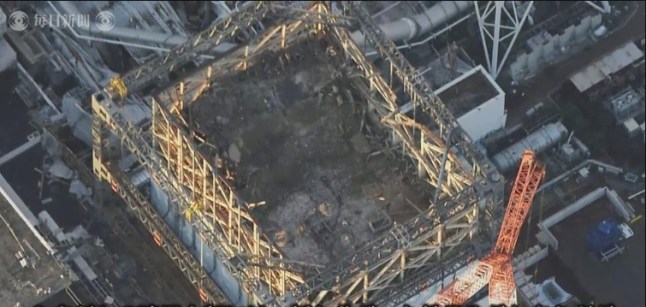VOX POPULI: Nuclear disaster surely taught us not to export this technology

The town of Futaba, which co-hosts the crippled Fukushima No. 1 nuclear power plant, used to boast signage promoting nuclear power generation.
One sign proclaimed, “Genshiryoku–Akarui Mirai no Enerugii,” which translates literally as “Nuclear power: The energy of a bright future.”
This and other signs were removed in the aftermath of the March 2011 nuclear disaster. They were relocated last month to the Fukushima Museum in the city of Aizuwakamatsu, according to the Fukushima edition of The Asahi Shimbun.
The museum is said to be considering an eventual exhibition of these acquisitions, which include a panel bearing the slogan, “Genshiryoku Tadashii Rikai de Yutakana Kurashi” (Proper understanding of nuclear energy enriches life).
These upbeat messages convey the hope, once held by the town of Futaba, that hosting the nuclear power plant will bring prosperity to the community.
But now, the reality gap is all too stark. Completely evacuated in the aftermath of the disaster, Futaba remains a dead town.
Is nuclear power still “the energy of a bright future”?
Prime Minister Shinzo Abe signed a Japan-India nuclear deal on Nov. 11 during his summit with Indian Prime Minister Narendra Modi, opening the way for Japan to export nuclear reactors to India.
This bilateral treaty came about at India’s request for Japanese technological cooperation.
In the vicinity of the stricken Fukushima No. 1 nuclear power plant, more than 50,000 citizens are still living as forced evacuees, while work continues on the dismantling of the plant’s disabled reactors.
How could any country that let this happen have no qualms about providing its nuclear technology to another country? This is simply beyond comprehension.
While campaigning for India’s general election two years ago, Modi stressed that the nation could not hope for industrial or agricultural progress without electricity.
Of India’s population of 1.3 billion, about 300 million are still living without electricity. Correcting this power deficiency is obviously an urgent task, but is providing nuclear technology to India the only help that Japan can offer?
With evacuation orders still in effect for Futaba citizens, there is still nothing to indicate that the town will be habitable again.
And we, the Japanese people, know at first hand how difficult it is to rebuild people’s lives that were destroyed by a nuclear accident.
http://www.asahi.com/ajw/articles/AJ201611120023.html
No comments yet.
-
Archives
- May 2024 (225)
- April 2024 (366)
- March 2024 (335)
- February 2024 (345)
- January 2024 (375)
- December 2023 (333)
- November 2023 (342)
- October 2023 (366)
- September 2023 (353)
- August 2023 (356)
- July 2023 (362)
- June 2023 (324)
-
Categories
- 1
- 1 NUCLEAR ISSUES
- business and costs
- climate change
- culture and arts
- ENERGY
- environment
- health
- history
- indigenous issues
- Legal
- marketing of nuclear
- media
- opposition to nuclear
- PERSONAL STORIES
- politics
- politics international
- Religion and ethics
- safety
- secrets,lies and civil liberties
- spinbuster
- technology
- Uranium
- wastes
- weapons and war
- Women
- 2 WORLD
- ACTION
- AFRICA
- Atrocities
- AUSTRALIA
- Christina's notes
- Christina's themes
- culture and arts
- Fuk 2022
- Fuk 2023
- Fukushima 2017
- Fukushima 2018
- fukushima 2019
- Fukushima 2020
- Fukushima 2021
- general
- global warming
- Humour (God we need it)
- Nuclear
- RARE EARTHS
- Reference
- resources – print
- Resources -audiovicual
- World
- World Nuclear
- YouTube
-
RSS
Entries RSS
Comments RSS


Leave a comment